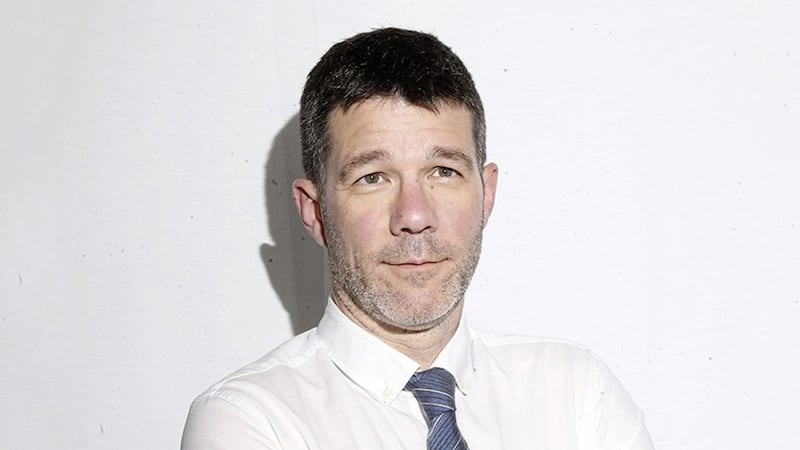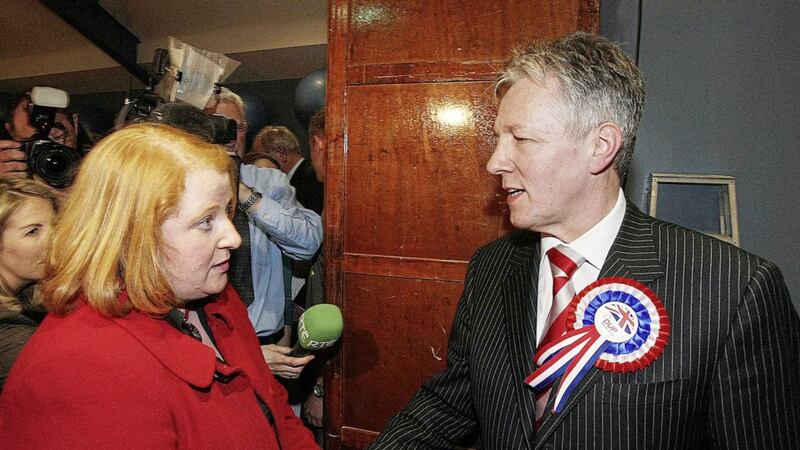The sea border has become the semantic border under the government’s proposals for implementing Northern Ireland’s Brexit arrangements.
London says it will not be an “international border”, making it an internal border, which was the original British objection. There will be no “new bespoke customs infrastructure in Northern Ireland”. However, the government will “expand” existing agrifood inspection posts, which is where the EU always said any customs officers would be based.
Tariffs and regulatory checks receive the same defiant yet compliant spin. It is a testament to this constructive ambiguity that the BBC headlined the story as London introducing sea border checks, while RTE headlined it as London rejecting them.
The DUP and Sinn Féin both broadly welcomed the proposals, suggesting their coronavirus truce has been extended.
All we need now is for Brussels to entrust its customs frontier to the sort of waffle that powers the peace process.
**
Appearing before an assembly committee, first ministers Arlene Foster and Michelle O’Neill offered a remarkably straightforward explanation for the Stormont truce. Asked about their new “cohesion” by the UUP’s Doug Beattie, O’Neill said everyone has learned to work together because the executive is having so many meetings. Arriving at the socially-distanced committee room a few minutes earlier, Foster had quipped that “Michelle and I are now basically in the same household”.
While we may be grateful for progress where we find it, there is something a little insulting about how easy this seems after the difficulties of recent years.
Instead of sending blameless young people away on Derry Girls-style cross-community weekends, perhaps Sinn Féin and the DUP should be occasionally despatched to a residential centre to write their differences out on a blackboard.
**
Stormont’s truce has not extended to the pension scheme for Troubles victims, passed by Westminster in January. Handing administration of the scheme back to a restored Stormont has resumed the DUP versus Sinn Féin argument about eligibility for terrorists injured by their own actions, holding up all payments. As Westminster was clear terrorists are not eligible, Sinn Féin could just blame the Tories and deny all responsibility, like it does with everything else.
**
Former Queen’s University Belfast academic Prof Mike Tomlinson has repeated his claim the coronavirus death rate is 50 per cent higher in Northern Ireland than in the Republic, which he has assessed by comparing official figures in the north with online death notices in the south.
Prof Tomlinson made a similar claim in a newspaper article earlier this month, using other figures. That was found to be “unsubstantiated” by the FactCheckNI website as the statistics were not comparable. Facebook, which uses FactCheckNI to remove fake news, took down Tomlinson’s article but put it back up again after complaints of censorship, ruling it was “opinion”. The professor’s latest claim also uses statistics that are not comparable, so the argument is just being sent around in another circle. While this provides no further insight into the epidemic, it provides a great deal of insight into academia.
**
Derry’s new medical school has finally received the go ahead, unlocking a little known agreement between the DUP and Sinn Féin to open a veterinary school at Coleraine.
This quid pro quo is not as grubby as it appears. Ulster University came up with the Coleraine proposal of its own volition in 2014, due to the chronic shortage of veterinary courses across the UK and Ireland. Sinn Féin and the DUP agreed to support the idea in return for expansion at Magee.
What has changed since is Brexit, never imagined in 2014. Sea border checks on agrifood are going to push demand for vets through the roof, which is great news for Coleraine. But it is a bit awkward for the DUP to say so.
**
DUP education minister Peter Weir has rejected calls to suspend transfer tests this year, saying there is “no viable alternative”. Tests are being put back two weeks despite months of school closures. In theory, as these closures impact all children, test rankings will be unaffected. In practice, families are understandably climbing the walls.
Weir issued departmental guidance in 2016 permitting academic selection by secondary schools and test preparation by primaries, so he bears responsibility.
However, between 2008 and 2016, all this was forbidden under departmental guidance and schools simply ignored it. In the unlikely event of Weir reversing his policy, the same would presumably occur.
**
Emma De Souza has had her immigration issue resolved but her citizenship conundrum rumbles on. DUP MP Gavin Robinson has caused annoyance by saying UK citizenship is the default in Northern Ireland under the Good Friday Agreement, with Irish citizenship “in addition to, not instead of”.
De Souza replied this denies Irish identity its parity of esteem under the agreement.
Legally, Robinson is correct. The agreement makes a distinction between identity and citizenship, reflecting that Northern Ireland is UK sovereign territory, unless a border poll makes Irish citizenship the default.
The problem with the DUP pointing out that parity of esteem applies to identity, not citizenship, is that it has so little esteem for Irish identity regardless.









